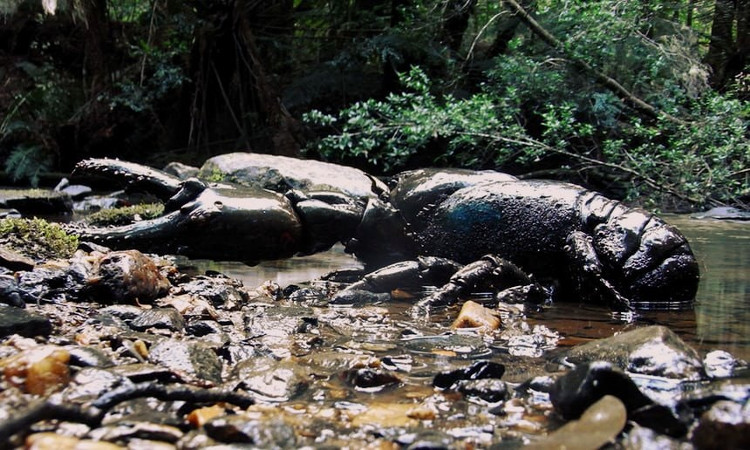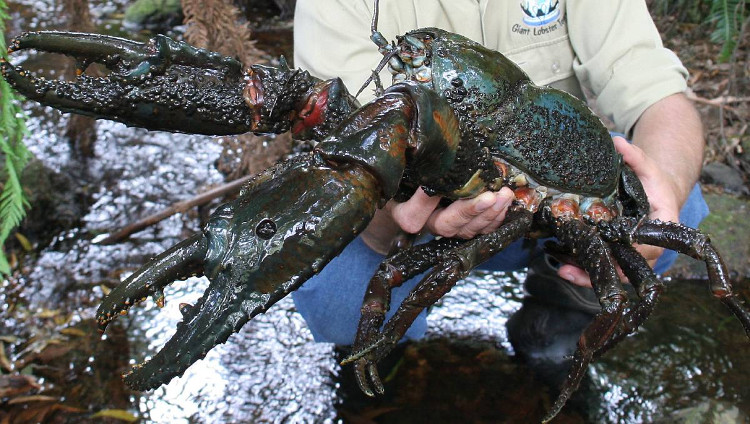The world's largest freshwater lobster is about to become extinct
Tasmanian lobster, the world's largest freshwater invertebrate, is standing on the brink of extinction.
According to new research, the number of Tasmanian lobsters , also known as giant river shrimp , is declining dramatically in recent years, News.com.au reported today.

Tasmanian lobsters are exceptionally large in size.(Photo: Guardian).
Weighing up to 6kg, this is the world's largest freshwater invertebrate , appearing only in rivers and streams in northern Tasmania, Australia. They can live for more than 60 years, grow to the size of an average dog and the pair is so strong that it can clamp a bone.
However, the number of these shrimps is severely declining after decades of land mining and poaching, according to researcher Todd Walsh.
Tasmania shrimp used to be considered a delicious dish. Previously, Walsh also arrested them for food. But now he uses his skills to tag tracking more than 1,600 shrimp in 62 different rivers across Tasmania.

This shrimp has been caught frequently as food.(Photo: Examiner).
Researchers estimate there are about 100,000 giant river shrimp in Tasmania. They do not know the exact number because they live in water and in remote areas.
Fortunately, earlier this month, experts discovered more than 30 babies born in captivity in the Ao Tom reserve, near Wynyard, northwest Tasmania. This is the first time such a thing has happened in the world, according to Kevin Hyland, protected area manager.
"We encourage schools and children's organizations to visit to help the younger generation become environmental protectors , " he said. Many older people recall that they used to catch this shrimp to eat. "Some people feel remorseful when they realize their mistake," Hyland said.
See more:
- America: Found huge lobster land never seen
- British diver caught giant lobster nearly 70 years old
- Lobster lobster 4 is rarely seen
- The largest animals are extinct
- Freshwater dolphins are about to become extinct
- Lobster grows again in a month
- Decode the mysterious lobster age
- Chinese desert freshwater lake gradually disappears
- To boil lobster live: Forget it if you're in Switzerland!
- Rare and precious blue lobster is caught by American fishermen
- Finding lobster has 6 fangs
- Why does American lobster become one of the most luxurious dishes in the world?
 Animal 'suffering' after hibernation
Animal 'suffering' after hibernation Why do goats climb well?
Why do goats climb well? Scientists were surprised to see chimpanzees eating turtles
Scientists were surprised to see chimpanzees eating turtles Giant catfish died deadly due to drought in Thailand
Giant catfish died deadly due to drought in Thailand